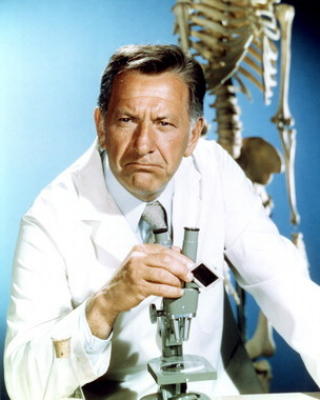Pretty much.
Just saw the last episode of Season two - Wow - this is to my thinking the best television show to air in recent time. Simply brilliant all the way through.
It’s quite rare that neither the GF nor I says a word during an episode of any show, but this? We are paying attention!
It looks like the BBC is going to sue CBS. The producer of Sherlock said that CBS had approached them about doing a remake of Sherlock but then decided to just make it their own as Elementary.
Doesn’t CBS already have the Mentalist? How many shows do you need about a guy who knows you visited Spain last year because you have breadcrumbs on your shirt collar?
D: D: D:
Holy shit. Cumberbatch’s next big role is Parade’s End (Ford Maddox Ford) and the adaptation is written by … Tom fucking Stoppard. Holy shit.
To be honest, I don’t know the book, author or writer. What is this series likely going to entail?
Tom Stoppard and his imdb page.
Parade´s End on the wiki. Might contain spoilers.
Basically, it is one of the greatest novels (actually, four novels) of the 20th century, centered around a man and two women during WW1. Tom Stoppard is possibly the greatest British screen- and playwriter still living. It’s produced by BBC and HBO.
I was actually thinking about classic Doctor Who when I joked about “The Hounds of Baskerville” being the best Doctor Who story Mark Gatiss has ever written. The episode wouldn’t have needed much more than an ancient alien evil behind it all to have been from the 70s era of Robert Holmes Doctor Who.


“Eccentric genius and his ex-military doctor friend” or “Eccentric alien time-traveler and his navy doctor friend” … I would love to see Benedict Cumberbatch play Tom Baker.
Those two pictures side-by-side are brilliant.
Man, british people on T.V. sure got more attractive as the years went on.
Yes we never had attractive leading men like you Yanks did in the 70s.


Hence, it’s a superhero story: Holmes will always do the right thing, and use his power for good
At least in the TV show, I’m not sure I agree. Well, I agree with the superhero categorisation, but I’d class him as a morally ambiguous one rather than a paragon of virtue. In fact, that was one of the things that bothered me about the finale - Moriarty going on about Holmes being on the side of the angels. In the show at least, we’ve seen relatively little of that. His primary motivation is always, as far as we can see, satisfying his curiosity and testing his deductive powers. The fact that he does good is secondary. We’re never really shown why Holmes is Holmes instead of Moriarty.
Holmes is Holmes and not Moriarty because he’s only a sociopath, not crazy.
But yeah, while his childhood is hinted at by the scenes with Mycroft, there is no indication of formative influence; presumably he has adopted some kind of code of behavior, but we don’t know what it is, exactly. On the other hand, we know even less about the childhood and formation of Doyle’s Holmes.
Holmes is Holmes and not Moriarty because he’s only a sociopath, not crazy.
Well, sure, but more generally, why does he solve crimes rather than concoct them?
Evidently it would be too easy; he is obviously not motivated by greed but by a challenge. Why this is the case is unclear.
I always thought that part of the Moriarty / Holmes relationship is that there isn’t anything dividing them, really. Holmes could easily be Moriarty, and it’s only happenstance that they ended up where they did.
I always thought that part of the Moriarty / Holmes relationship is that there isn’t anything dividing them, really. Holmes could easily be Moriarty, and it’s only happenstance that they ended up where they did.
That’s what I’m saying. And yet (in the show) Moriarty is supremely confident that Holmes is and will stay on the side of the angels and hence top himself. And Watson doesn’t doubt him either. It just doesn’t really sit entirely comfortably with what we’re shown about Holmes’s character.
Holmes is a romantic, he’s always has been. He’s just not emotional about it.
I doubt it’s something that he spends time thinking about it, nor does Conan Doyle and very few other writers spend time ruminating about. It was alluded to quickly in the first episode of this series, “At a child, he wanted to be a pirate!”. Holmes is brilliant and it’s often his intellect that gets in the way of his empathy, but I think some lizard part of his brain understands the needs to how society functions and he does not feel compelled to break them.
No he tops himself because he sees that Holmes is willing to go just as far as he is and that he just wants to win the game too.
The difference is of course that Holmes has a touch more humanity in that he isn’t driven to hurt others (as Moriarty seems to be) but if they get hurt in the process, they get hurt.